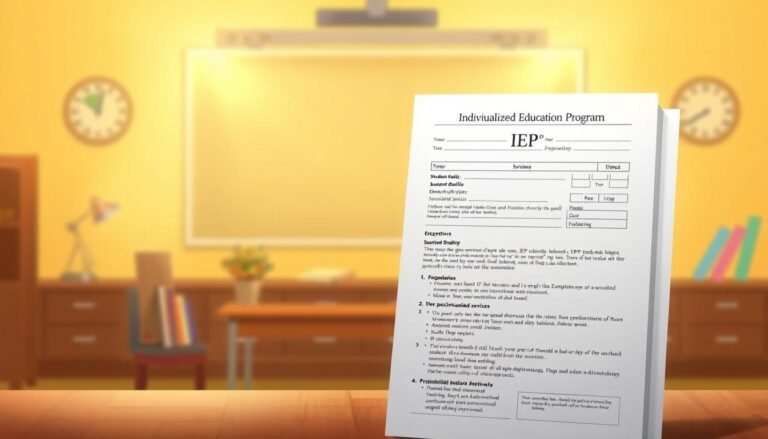
Honest Talk: Creating a Safe Space for Your Child to Discuss Their Learning Challenges
Introduction
In today’s fast-paced and ever-evolving educational landscape, children may face learning challenges that can greatly affect their self-esteem and academic performance. Navigating these challenges requires open lines of communication and unwavering support from parents and caregivers. The concept of an "Honest Talk: Creating a Safe Space for Your Child to Discuss Their Learning Challenges" is not merely an ideal; it is essential for fostering resilience and self-advocacy in children. Today, we’ll delve into inspiring ways to cultivate this environment, ensuring that children feel heard, supported, and empowered.
Understanding Learning Challenges
Before we delve into creating a safe space, it’s crucial to understand what learning challenges are. These can range from specific learning disabilities like dyslexia and ADHD to broader issues related to anxiety or cultural barriers affecting educational success. Recognizing the signs and symptoms will help you engage in productive discussions with your child.
Types of Learning Challenges
| Type | Description |
|---|---|
| Dyslexia | Difficulty reading fluently or accurately. |
| ADHD | Trouble focusing, hyperactivity, and impulsiveness. |
| Anxiety Disorders | Intense fear or worry affecting concentration and learning. |
| Auditory Processing | Struggles to understand spoken information. |
Case Study: Emma’s Journey with Dyslexia
Emma, a 9-year-old, was increasingly frustrated with reading assignments. Each time she attempted to read aloud, her peers laughed, causing her to withdraw. Her mother decided to talk to her openly about her feelings and experiences.
By creating a safe space for "Honest Talk: Creating a Safe Space for Your Child to Discuss Their Learning Challenges," Emma’s mom helped her understand her learning disability and seek help, turning frustration into empowerment.
Signs Your Child May Be Struggling
- Avoidance: They may refuse to engage in homework or school-related tasks.
- Frustration: Signs of distress when discussing school topics.
- Declining Grades: Sudden drops in performance may indicate underlying issues.
Establishing a Comfortable Environment
To engage in honest discussions, you must create an environment where your child feels safe to express their thoughts and emotions. Here are some methods:
1. Open-Ended Questions
Instead of asking yes or no questions, encourage dialogue with open-ended queries like, “What part of school do you enjoy the most, and why?” This invites your child to express themselves freely.
2. Non-Judgmental Listening
Practice active listening. Show empathy and understanding in your responses. Acknowledge their feelings and encourage them to share their experiences without fear of correction or criticism.
Case Study: Liam’s Experience with ADHD
Liam, a 12-year-old diagnosed with ADHD, often found it challenging to sit still. When his father began to practice non-judgmental listening, he felt more comfortable sharing his struggles. Liam expressed how chaotic classroom settings made concentrating difficult.
By engaging in an Honest Talk, Liam’s father improved their communication and established strategies that catered to Liam’s learning style.
3. Consistent Check-ins
Regularly check in with your child about their feelings towards school and learning. Daily discussions during dinner or before bed can help normalize conversations about challenges.
4. Use Visuals and Written Tools
Sometimes children articulate their feelings better through writing or visuals. Use charts or drawings charting their emotions relative to their learning experience.
Table: Emotions and Learning Challenges
| Emotion | Potential Learning Challenge |
|---|---|
| Frustration | Dyslexia, Processing Disorder |
| Anxiety | Social Phobia, General Learning Anxiety |
| Distraction | ADHD, Environmental Noise |
Building Trust Through Communication
Creating a safe space relies heavily on the trust established between parent and child. Here are some techniques to foster that trust:
1. Share Your Experiences
Model vulnerability by sharing your own learning struggles. This shows your child that everyone encounters setbacks and creates a level playing field.
2. Respect Their Privacy
Reassure your child that their feelings and struggles are confidential. Trust is built on the promise that personal discussions stay between the two of you.
Case Study: Sara and Her Math Anxiety
Sara, a high school freshman, faced incredible anxiety during math tests. When her mother shared her own struggles with math in school, Sara felt relieved to know she wasn’t alone. This authentic sharing initiated an open dialogue about coping strategies.
3. Remain Patient and Supportive
Sometimes, children may take time to open up. Let them know it’s okay to share anytime. Remain patient while emphasizing that their feelings are valid.
Working Together: Collaborative Solutions
After establishing a safe space for Honest Talk, it’s time to work collaboratively on solutions that address your child’s learning challenges.
1. Involve Educators
Communicate with teachers and school counselors about your child’s needs. They can provide tailored strategies and resources that will support your child’s learning journey.
2. Advocate for Resources
Many schools offer extra support services for children with learning challenges. Familiarize yourself with these programs and advocate for your child’s needs.
3. Explore Professional Support
Consider working with educational psychologists or special educators trained to address learning challenges. Such interventions can provide targeted assistance.
Case Study: Ryan’s Special Education Program
Ryan was diagnosed with a generalized learning disability. His parents worked closely with his teachers to establish an IEP (Individualized Education Program). The constant Honest Talk: Creating a Safe Space for Your Child to Discuss Their Learning Challenges allowed Ryan to express his thoughts throughout the process, leading to a personalized strategy that greatly improved his academic life.
Table: Support Options for Learning Challenges
| Type of Support | Description |
|---|---|
| Tutoring | One-on-one assistance focused on specific skills |
| Educational Therapy | Professional guidance to produce coping strategies |
| Special Education | Custom programs designed to meet individual needs |
Encouraging Self-Advocacy
Empowering your child to become their own advocate is crucial. Here are useful tactics:
1. Teach Them to Express Their Needs
Encourage your child to communicate their challenges and needs to teachers and peers. Role-playing can help them practice these scenarios confidently.
2. Promote Problem-Solving Skills
Encourage your child to think critically about their learning difficulties. Help them brainstorm solutions and evaluate what works versus what does not.
3. Celebrate Small Wins
Recognize and celebrate progress, no matter how small. This boosts their confidence and reinforces positive behavior.
Case Study: Chloe’s Self-Advocacy
Chloe, a fifth-grader with Dyscalculia (difficulty with math tasks), initially felt overwhelmed when asking for extra help. After several Honest Talks with her supportive family, she learned to articulate her struggle to her teacher. This simple act of self-advocacy transformed her experience in the classroom.
Conclusion
Navigating the complexities of learning challenges can be daunting, but honest conversations and supportive environments are fundamental for your child’s growth. The toolkit outlined here— from open communication to professional intervention—will aid you in your quest for effective strategies.
The journey is not merely about overcoming challenges; it serves as a powerful foundation for resilience and self-advocacy. By committing to "Honest Talk: Creating a Safe Space for Your Child to Discuss Their Learning Challenges," you are assured of a brighter, more empowering future for your child.
FAQs
How do I start an honest talk about learning challenges with my child?
- Begin with open-ended questions and ensure a comfortable setting at home.
What if my child is reluctant to share?
- Be patient and give them time. Encourage them without pressing them for details.
When should I seek professional help for my child?
- If you observe persistent challenges affecting their daily routine and self-esteem, consider consulting educational professionals.
What if my child experiences bullying related to their learning challenges?
- Address the issue immediately by discussing it with school authorities and ensure your child feels supported.
- How can I ensure ongoing communication about learning challenges?
- Establish regular check-ins and create a culture of openness at home, encouraging your child to share whenever they feel the need.
In this journey of support and understanding, your commitment will create lasting impacts on your child’s academic life and overall well-being. Empower them to face challenges with courage and perseverance.
















